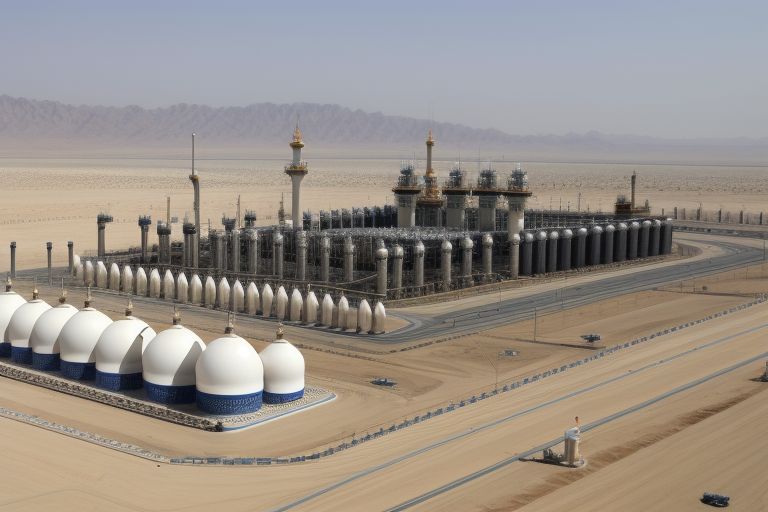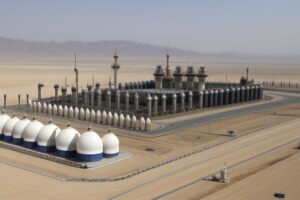Saudi Petroleum Products: Driving the Global Energy Market
Saudi Arabia is a leading producer and exporter of petroleum products, supplying essential fuels and chemicals to industries worldwide. With vast reserves and a well-developed energy sector, the kingdom plays a vital role in meeting global energy demands. This article explores the significance of Saudi petroleum products, their global impact, and the future of the industry.
The Importance of Saudi Petroleum Products
Saudi Arabia possesses some of the largest oil reserves in the world, enabling it to produce a wide range of petroleum products. These include refined fuels, lubricants, petrochemicals, and specialty chemicals essential for various industries, from transportation to manufacturing.
The Saudi petroleum industry is dominated by Saudi Aramco, the world’s largest oil company. Through advanced refining technologies and strategic investments, Saudi Arabia continues to enhance the efficiency and quality of its petroleum products, ensuring a steady supply to international markets.
Major Petroleum Products and Their Uses
Saudi Arabia refines crude oil into various petroleum products that serve different purposes. Some of the most significant products include:
- Gasoline and Diesel – Essential fuels for transportation, powering millions of vehicles worldwide.
- Jet Fuel – A key component for the aviation industry, ensuring smooth air travel operations.
- Liquefied Petroleum Gas (LPG) – Used for heating, cooking, and industrial applications.
- Bitumen (Asphalt) – A critical material for road construction and infrastructure development.
- Petrochemicals – Used in manufacturing plastics, fertilizers, synthetic materials, and pharmaceuticals.
Saudi Arabia’s ability to produce and export these petroleum products ensures the stability of the global supply chain, meeting the needs of industries across continents.
Global Market Influence
As one of the top suppliers of petroleum products, Saudi Arabia plays a crucial role in determining energy market dynamics. The kingdom exports refined products to key markets in Asia, Europe, and North America, securing long-term trade relationships with major economies.
Saudi Arabia’s pricing strategies and production adjustments influence global energy costs, affecting industries dependent on petroleum-based materials. The country also collaborates with OPEC+ to regulate production levels, stabilizing global oil prices and preventing market disruptions.
Saudi Vision 2030 and Industry Diversification
As part of its Vision 2030, Saudi Arabia aims to diversify its economy by expanding its energy sector beyond crude oil exports. The kingdom is investing in downstream industries, including refining and petrochemicals, to maximize the value of its petroleum resources.
Key initiatives include:
- Expansion of Refining Capacity – Developing new refineries and upgrading existing facilities to produce high-quality fuels and chemicals.
- Integration of Petrochemical Industries – Strengthening the production of essential chemicals for industrial and consumer use.
- Renewable Energy Projects – Investing in solar, hydrogen, and wind energy to balance traditional petroleum exports with sustainable energy solutions.
Challenges in the Petroleum Sector
Despite its dominance, Saudi Arabia faces several challenges in maintaining its position as a leading petroleum product exporter:
- Volatile Oil Prices – Global economic fluctuations and supply chain disruptions impact pricing and demand.
- Environmental Regulations – Increasing global efforts to reduce carbon emissions affect the demand for fossil fuels.
- Technological Advancements – The rise of alternative energy sources, such as electric vehicles, poses competition for traditional fuels.
- Geopolitical Tensions – Regional conflicts and international policies can disrupt supply routes and affect trade agreements.
Opportunities for Expansion
Saudi Arabia is exploring new markets and strengthening relationships with key trade partners. The country is focusing on expanding petroleum exports to growing economies in Africa, Central Asia, and Southeast Asia, securing long-term contracts and investment opportunities.
For those looking to visit Saudi Arabia for business, investment, or tourism, obtaining a visa is essential. Travelers can apply for a Saudi Visa for Japanese Citizens or Saudi Visa for Kazakhstani Citizens through official channels.
Future of Saudi Petroleum Products
Despite the shift towards renewable energy, petroleum products will remain a cornerstone of global industrial operations for decades. Saudi Arabia continues to adapt by integrating sustainable energy solutions while maintaining its leadership in the petroleum sector.
Advancements in carbon capture technologies, cleaner refining processes, and hybrid energy models will shape the future of Saudi petroleum exports. As global demand evolves, the kingdom is positioning itself to balance traditional energy production with innovative solutions for a sustainable future.
Conclusion
Saudi petroleum products play a fundamental role in powering economies and industries worldwide. With a strong commitment to innovation, sustainability, and economic diversification, Saudi Arabia is securing its place as a global leader in the energy sector. As the demand for refined fuels and petrochemicals continues, Saudi Arabia remains a key player in shaping the future of global energy markets.














Post Comment